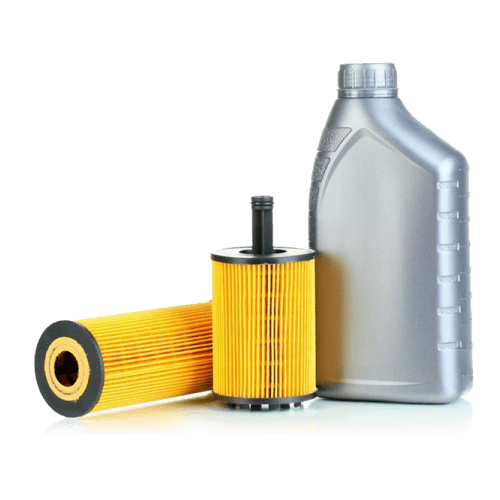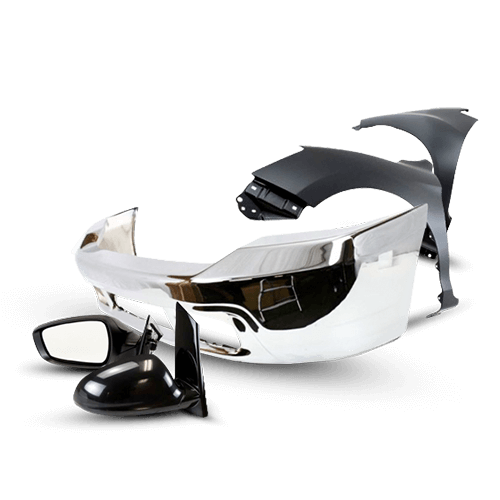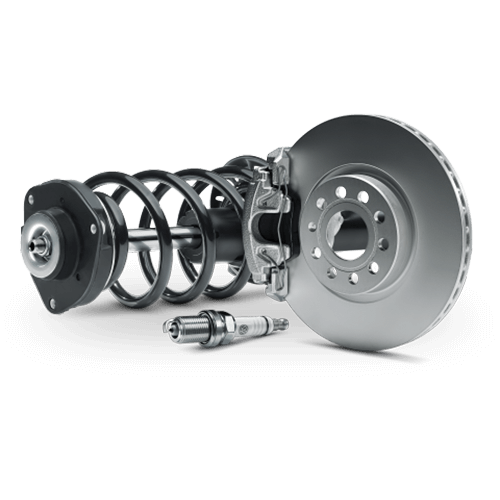
What Happens If Your Car Suspension Is Bad?
Your car's suspension system plays a crucial role in ensuring a smooth and safe ride. But what happens if your car suspension is bad?
Consider your vehicle's suspension to be a bridge between it and the unpredictable terrain it encounters. When this bridge deteriorates or fails, the consequences can be far-reaching and extend beyond a few bumps in the road.
In this article, we will delve into the vehicle's suspension system and investigate the cascading effects of a failing suspension on your driving experience, vehicle safety, and even your wallet! So get ready to enter the world of what happens when your car's suspension is in bad shape.
What Is the Suspension System in a Car?
Let's first get the basics down to understand what happens when your car suspension is bad. The suspension system is a complicated network of components that connects the wheels of your vehicle to the rest of the vehicle. It serves several functions:
- Smooth Ride: A well-functioning suspension system absorbs road shocks and vibrations, resulting in a smooth ride.
- Traction: It keeps your car's tires firmly planted on the road, ensuring optimal grip.
- Handling: Suspension systems play a crucial role in steering and maintaining stability, especially during turns.
Now that we've got the basics down, let's explore the signs that your car's suspension might be in trouble.
read more: How an Engine Cooling System Works?

Signs Your Car Suspension Is Bad
Detecting issues with your car's suspension system early can save you from costly repairs and ensure your safety on the road. Here are some telltale signs that your car's suspension may be in poor condition:
Bumpy Ride
One of the most apparent signs is a ride that feels rougher than usual. If you're bouncing around in your seat, your suspension might be damaged.
Uneven Tire Wear
Excessive wear on the edges of your tires can indicate suspension issues. A bad suspension can lead to poor alignment, causing uneven tire wear.
Drifting or Pulling
If your car seems to drift or pull to one side when driving straight, it might be due to a suspension problem.

Nose Dives During Braking
If your car's front end dips excessively when you apply the brakes, it's a sign that your suspension isn't doing its job properly.
Excessive Bounce After Bumps
After encountering bumps, a properly functioning suspension should return to its normal state quickly. If your car continues to bounce, consider it a red flag.
Is It Safe to Drive With a Broken Suspension?
Let us now address an important question: Is it safe to drive with a broken suspension? The simple answer is no. A faulty suspension system can have a significant impact on the stability and handling of your vehicle. Here's why it's dangerous:
- Reduced Control: A bad suspension system makes it difficult to control your car, especially in an emergency.
- Braking Distance: A lack of suspension support can result in longer braking distances, increasing the risk of an accident.
- Tire Wear: Driving with a bad suspension can result in rapid and uneven tire wear, putting your safety at risk.
How Much Does It Cost to Repair a Car Suspension?
The cost of repairing a car suspension can vary greatly depending on several factors, including the make and model of your vehicle, the severity of the damage, and local labor costs. Suspension repairs can cost anywhere from $1,000 to $5,000 or more on average. The following are examples of common suspension repairs:
- Replacing Shocks or Struts: This can cost between $150 to $600 per pair, including labor.
- Replacing Springs: Depending on your vehicle, spring replacement can cost around $200 to $500.
- Bushings and Mounts: Repairing these components can range from $100 to $400.
Remember, timely suspension repairs can prevent more extensive and expensive damage down the road.

Does a bad suspension cause a car breakdown?
Suspension damage alone is rarely enough to wreck a car. While a damaged suspension can have an impact on the ride quality, handling, and safety of a vehicle, it is usually repairable by replacing or repairing the damaged components. In most cases, addressing suspension issues as soon as possible can return the vehicle to its proper working condition.
However, it is important to note that if severe suspension damage is not addressed, it can lead to additional problems. For example, if a damaged suspension component causes misalignment, it can result in uneven tire wear, affecting both the tires and handling. Driving with a severely damaged suspension for an extended period of time may also put stress on other parts of the vehicle, potentially resulting in more extensive damage and higher repair costs.
Ultimately, the impact of bad suspension on a car depends on the extent of the damage, how quickly it is addressed, and whether it leads to collateral damage. Regular maintenance and prompt repairs can prevent suspension problems from worsening and ensure your vehicle's long-term health and performance.
How to Sell a Car With a Damaged Suspension System?
Selling a car with a faulty suspension system can be difficult, but it is not impossible. consider the following guidance:
- Get an Assessment: Allow a professional mechanic to assess the damage and provide a repair estimate.
- Disclose the Issue: Be honest with potential buyers about the suspension problem. Transparency fosters trust!
- Price It Right: Adjust the selling price of your vehicle to reflect the cost of repairs.
- Sell to a Mechanic: Consider selling the car to a mechanic or an auto repair shop that specializes in fixing and reselling vehicles.

Conclusion
When it comes to buying a suspension system for your car, finding the right parts from reputable sources is essential to ensuring safety and performance. While there are several options, an online automotive parts store like Best Parts is one of the best places to buy suspension components. This website provides detailed product information as well as a large selection of suspension parts.
Additionally, Best Parts Shop frequently runs promotions and discounts, making it more budget-friendly to maintain or repair your car's suspension system without compromising on quality.
You can improve your vehicle's suspension and drive with confidence by selecting the best suspension components from Best Parts. Explore and buy your preferred suspension online right now!
FAQ
- Can I drive with a bad suspension if I stay away from rough roads?
It is still not advised. Even on smooth roads, poor suspension jeopardizes safety and can lead to other problems.
- Is it possible to do suspension repairs yourself?
Some minor suspension repairs, such as replacing sway bar links, can be performed by experienced do-it-yourselfers. Major repairs, on the other hand, should be left to professionals.
- How often should I have my suspension checked?
It's a good idea to have your suspension inspected during routine maintenance, typically every 12,000 to 15,000 miles.
- Can bad suspension damage other parts of my car?
Yes, a bad suspension can lead to damage to other components, including your tires, brakes, and steering system.























































